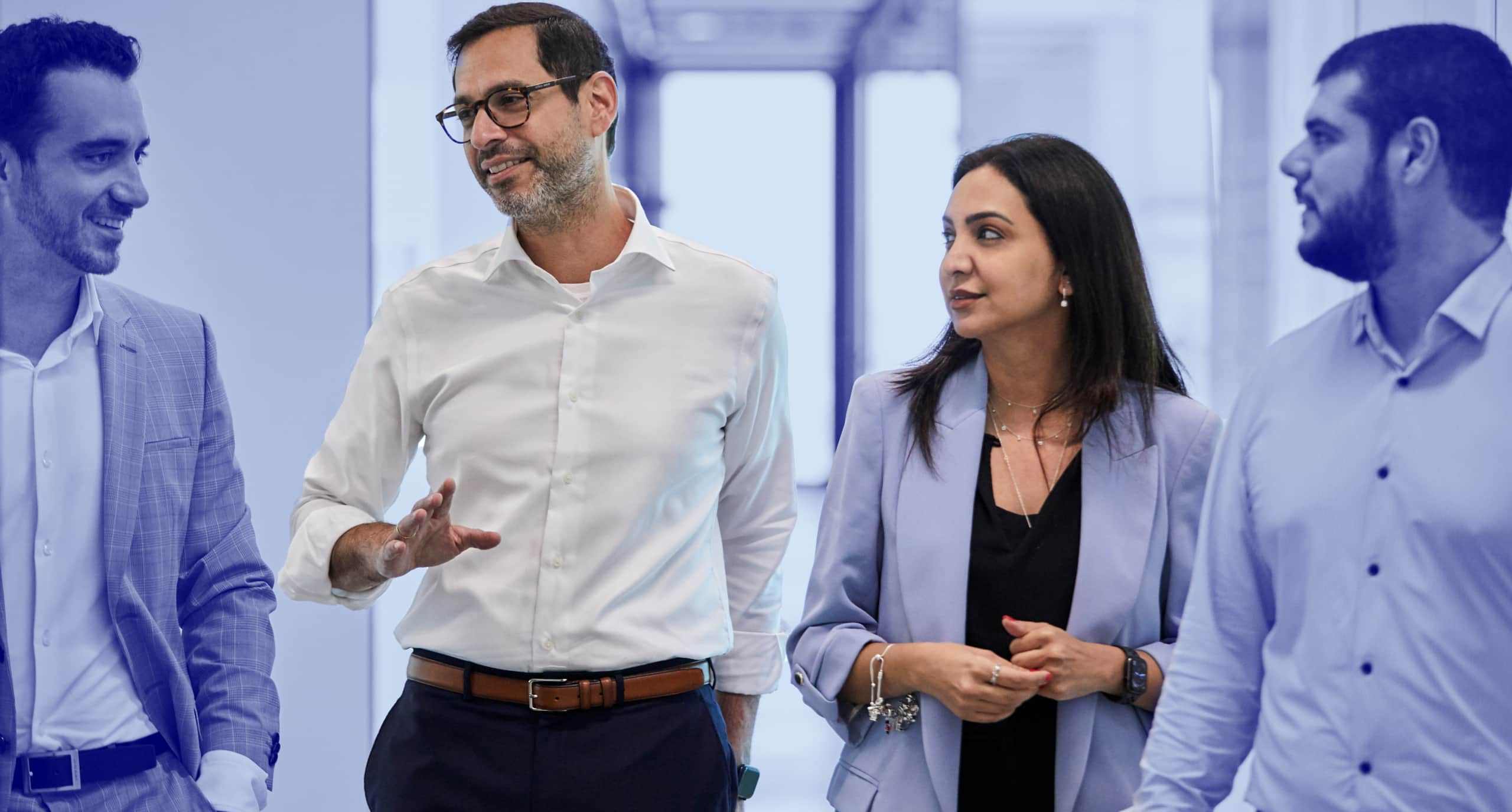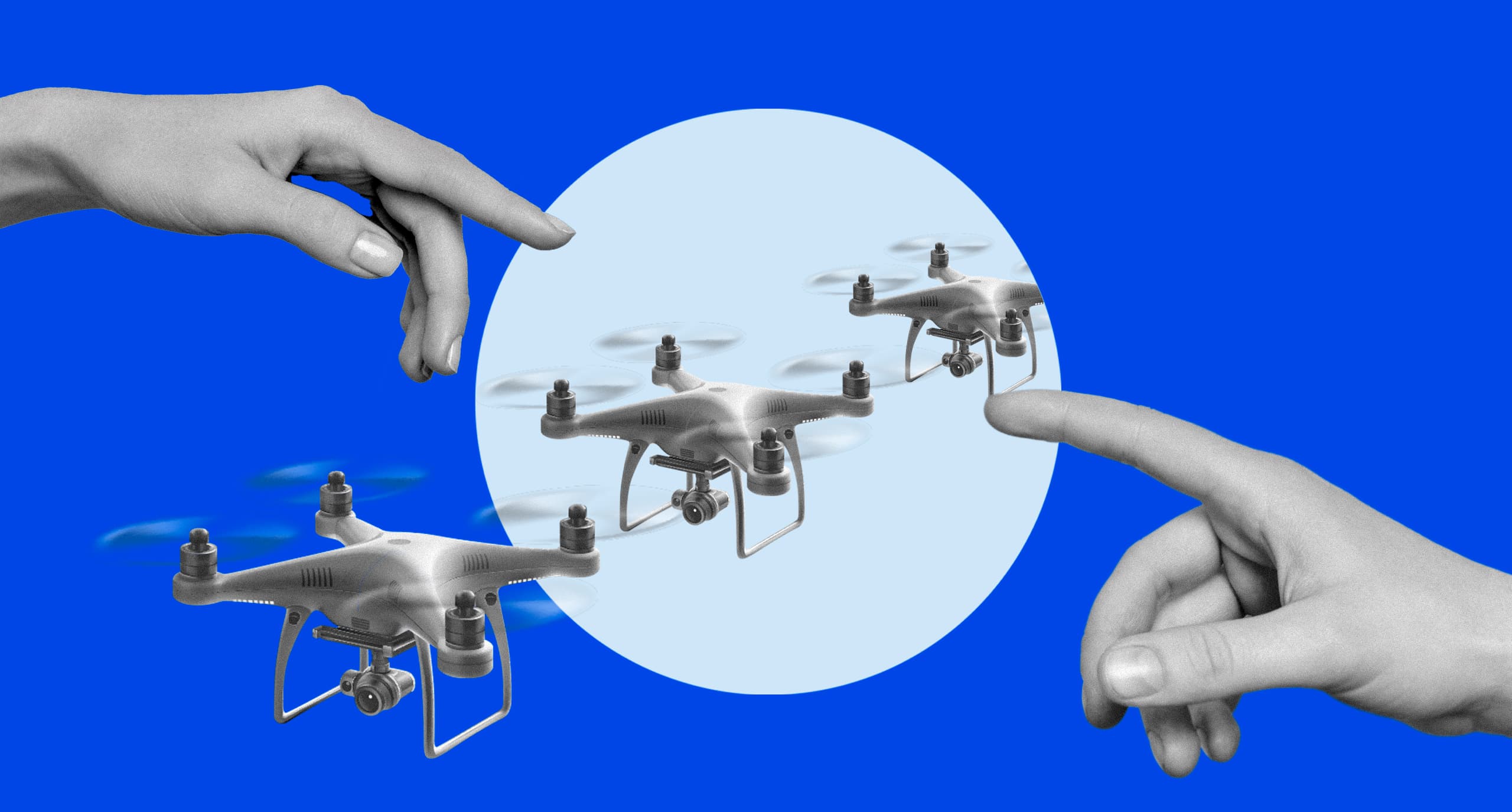The last few decades have steadily closed the gap between institutions of higher learning and the corporate world. Since gaining broader appeal, this growing trend of industry-academia collaboration has become one of the most efficient drivers of innovation in the world. Apart from facilitating knowledge exchange and dynamic resource sharing, the resulting collaborative ecosystem produces high-value research that gives companies a competitive edge, nurtures talent and inspires new ideas.
A game-changing partnership
IE Law School is widely acclaimed as a leader in global legal education. With a focus on rigor and a unique Comparative Law methodology, the school shapes practitioners capable of legal excellence across borders. One of the ways it fulfills its mandates is by maintaining strong relationships with pioneering multilateral bodies, researchers and organizations in the sector.
To this end, IE Law School signed a strategic collaboration with the World Intellectual Property Organization (WIPO) to join forces to develop a joint specialization diploma in Intellectual Property and Technology Law within the Master of Laws (LL.M.).
WIPO is a self-funding agency of the United Nations that is the premier global forum for IP services, policy, information and cooperation in 193 countries worldwide. Since its establishment in 1967, the organization has dedicated itself to leading efforts to establish an international IP system that fosters creativity and innovation.
WIPO x IE Law School
In a recent chat, we invited Mr. Sherif Saadallah, executive director of WIPO Academy, to explain more about the organization, their work and what they hope to achieve in this groundbreaking collaboration.
Q: What is the WIPO Academy?
Mr. Saadallah: The WIPO Academy is the largest provider of IP skills training in the world, having trained over 1.2 million people so far. The WIPO Academy has garnered a wealth of expertise in IP education using cutting-edge pedagogical methods that are beneficial to students, even more so when the curriculum incorporates a global perspective being taught by scholars from renowned universities and experts from WIPO.
Q: Can you provide a brief overview of the joint program between WIPO and IE Law School?
S: The Master of Laws (LL.M.) in Intellectual Property and Technology Law with IE Law School stems from a need to meet the dearth of IP expertise, as well as the ground reality that IP is all around us and is greatly shaping how we interact with the world both in public, private and commercial settings. This joint specialization is built on a strong will to prepare the IP experts of tomorrow with the necessary knowledge to apply IP in this increasingly technologically and innovation-driven world.
The specialization is designed to address the most advanced areas of IP and technology, including artificial intelligence, blockchain, IP and gaming, robotics and more, alongside specific modules on innovation, entrepreneurship, new technologies, IP for business and IP management.
Q: What motivated WIPO to collaborate with IE Law School, and what are the key objectives of this initiative?
S: IE Law School is a top-ranked institution that offers outstanding education. WIPO’s motivation to collaborate with the school was based on the firm belief that students from all around the world will receive the highest quality IP education and access to state-of-the-art facilities, allowing them to benefit from the knowledge gained and, thereafter, be able to use IP effectively as a tool for sustainable growth and development.
The collaborative efforts between WIPO and IE Law School have the potential to significantly influence the trajectory of intellectual property education.
Why study IP and tech law?
According to Mr. Saadallah, students of the Master of Laws (LL.M.) joint specialization diploma in Intellectual Property and Technology Law enjoy a host of benefits throughout the program. Students will:
- Discover a 360° view of IP law
Today’s fast rate of technological advancement means IP law is constantly evolving to keep up. By focusing on this specialization, students gain an in-depth overview of IP law, revealing the true breadth of this dynamic field. As Mr. Saadallah points out, “Students learn how substantive IP law interfaces with the digital sphere, including its relation to key areas such as internet law, global data governance, cybersecurity and cybercrime laws.”
- Learn from the best
This specialization blends the expertise of two world-leading academic giants: IE Law School and WIPO Academy. As a result, students get to learn from leading practitioners in the field, drawn from all over the world to offer a broad range of perspectives.
Students also benefit from the holistic learning methodology employed in the program, combining in-class and hands-on experiences for a well-rounded skill set. “Furthermore, the program incorporates lectures from WIPO experts, which provide students with the latest insights into trends and policy developments in the field of IP and technology law.”
- Enjoy exclusive access at WIPO HQ
This specialization presents an exclusive chance to travel to Geneva and see the WIPO headquarters and understand how the organization works behind the scenes. There, “Students can learn from leading practitioners in the field and hear firsthand from the experts at WIPO,” says Mr. Saadallah.
- Join a valuable ecosystem
After years of experience shaping international IP policy and education, the WIPO Academy has built a vibrant ecosystem designed to bolster students’ professional profiles. Studying this specialization ensures direct access to the WIPO International Network for IP Education (WINIPE), a rich trove of resources, e-books and other academic materials provided for research purposes.
WINIPE is also the central repository for all WIPO Joint Master’s Programs. Currently, 15 institutions are involved in this initiative, with the number set to rise to 17 by 2024. This means that students plugged into the WINIPE platform can review the curricula adopted by each program. They can also network with and exchange ideas with IP experts, professors and like-minded peers.
What’s more, through WINIPE Colloquium, program directors from all academic partner institutions come together to chart the way forward for the next year. From new teaching methodologies and collaborations to enriching internships, hands-on training experiences and more, this gathering ensures students’ needs lead the way in any growth agenda.
Toward global expertise
“WIPO recognizes the critical importance of collaboration between organizations and academic institutions to foster innovative approaches in education,” Mr. Saadallah explains. That’s why the body continuously works with IE Law School to strengthen and diversify the jointly offered specialization in Intellectual Property and Technology Law within the Master of Laws (LL.M.). To boost its appeal, the WIPO Academy will soon start offering prizes to the top three best-performing students in the program every year.
Initiatives like this represent another step forward for industry-academia collaboration. Not only does it set a successful precedent for others to follow, but “combining theoretical knowledge with practical insights and global perspectives ensures graduates are better equipped to navigate the complex landscape of intellectual property and technology law on a global scale.”
Innovation needs regulation to thrive. Ready to play your part in the next big tech or IP discovery?
Specialize in Intellectual Property and Technology Law during your Master of Laws (LL.M.) and benefit from the combined expertise of two world-leading institutions.






